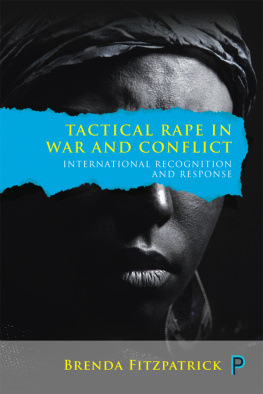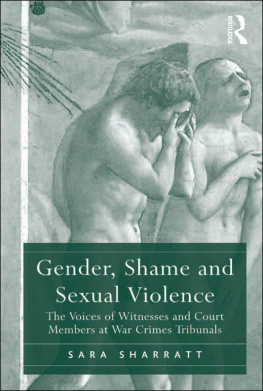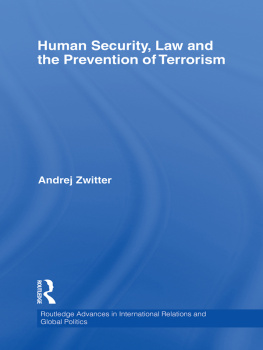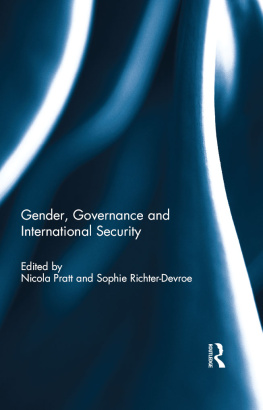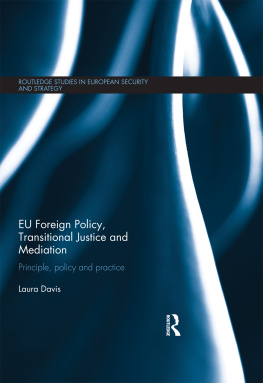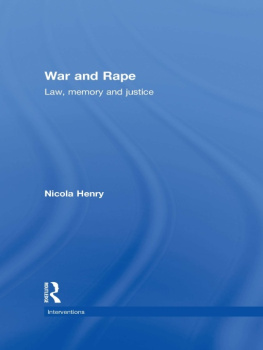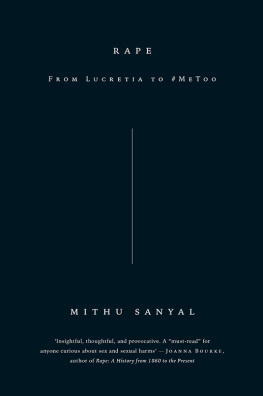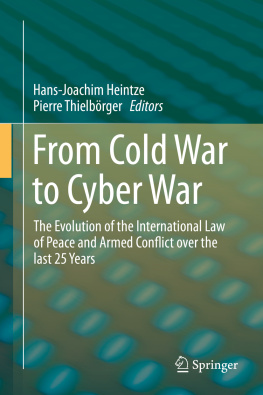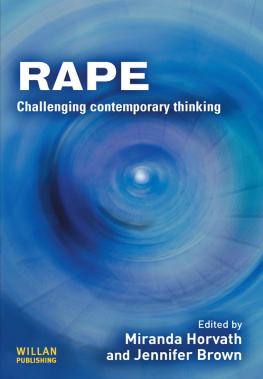First published in Great Britain in 2016 by
Policy Press University of Bristol 1-9 Old Park Hill Bristol BS2 8BB UK Tel +44 (0)117 954 5940 e-mail
North American office: Policy Press c/o The University of Chicago Press 1427 East 60th Street Chicago, IL 60637, USA t: +1 773 702 7700 f: +1 773-702-9756 e:
Policy Press 2016
British Library Cataloguing in Publication Data
A catalogue record for this book is available from the British Library
Library of Congress Cataloging-in-Publication Data
A catalog record for this book has been requested
ISBN 978-1-4473-2670-0 paperback
ISBN 978-1-4473-2669-4 hardcover
ISBN 978-1-4473-2674-8 ePub
ISBN 978-1-4473-2673-1 mobi
The right of Brenda Fitzpatrick to be identified as author of this work has been asserted by her in accordance with the Copyright, Designs and Patents Act 1988.
All rights reserved: no part of this publication may be reproduced, stored in a retrieval system, or transmitted in any form or by any means, electronic, mechanical, photocopying, recording, or otherwise without the prior permission of Policy Press.
The statements and opinions contained within this publication are solely those of the author and not of the University of Bristol or Policy Press. The University of Bristol and Policy Press disclaim responsibility for any injury to persons or property resulting from any material published in this publication.
Policy Press works to counter discrimination on grounds of gender, race, disability, age and sexuality.
Cover design by Hayes Design
Front cover image: Glow images
Readers Guide
This book has been optimised for PDA.
Tables may have been presented to accommodate this devices limitations.
Image presentation is limited by this devices limitations.
Foreword
In 2008, Major General Patrick Cammaert remarked: It is now more dangerous to be a woman than to be a soldier in modern wars. Cammaert made this observation during his period of service as the Deputy Force Commander of the United Nations Mission in Democratic Republic of Congo (DRC). In what had been, and remains, a protracted civil conflict, the DRC gained the unenviable reputation as rape capital of the world. Sadly, while this conflict has been marked by unprecedented levels of sexual violence, gross offences committed against civilian populations including rape, sexual torture and forced pregnancy have been a regular occurrence in warfare for millennia. Often perpetrated as a conscious strategy to terrorize, demoralize, injure, degrade, intimidate and punish affected populations, yet for millennia sexual violence has been dismissed as an inevitable consequence of armed conflict and excluded from laws of war designed to prevent the degeneration of men into brutes. Currently, research is making visible the hidden history of sexual abuse against men and boys in conflict zones. As Brenda Fitzpatrick acknowledges, this is important work, but in pursuing new agendas, we should not neglect the continued suffering of women and girls in conflict. In international humanitarian law, the exclusion of women from the category of human has gone unchallenged for far too long, viewed instead as the property of men, and the violation of women deemed a property crime.
The conflict in the former Yugoslavia and the genocide in Rwanda in the 1990s marked a turning point. In the wake of these events, there was significant progress in recognising and confronting conflict related sexual violence. The International Criminal Tribunal for the former Yugoslavia (2000) was particularly important in recognising that such violence might be organised, systematic and perpetrated by states. The Women, Peace and Security Agenda initiated at the Beijing Conference in 1995, United Nations Security Council Resolution 1325 (2000) and subsequent Security Council resolutions, along with developments in international humanitarian law and in the International Criminal Courts, have all contributed to the understanding that sexual violence in conflict might be strategic undertaken in pursuit of military and political objectives. There is now an international architecture, legal instruments and processes in place to challenge the long-standing culture of impunity, to hold perpetrators to account and to realise justice for survivors.
This change would not have been possible without the efforts of many committed individuals, non-governmental organisations (NGOs), advocates and activists in the transnational feminist movements and human rights organisations, and researchers, documenting abuses and reworking the conceptual frames through which we think about and view violence, conflict and security and the subjects of international law of war. Brenda Fitzpatrick has been a part of this project. As both a long-time activist and researcher in many wars and conflicts, she submitted reports to international agencies and the Australian Government, and in her recent academic work, cumulating in the publication of this text, she has made a difference. Her book will serve as an important resource for researchers through her expert surveys and analysis of UN documents, NGO reports, decisions made by international criminal tribunals and the testimonies and judgments from leading experts and opinion formers in the field.
She goes beyond this contribution. While recognising that sexual violence takes many forms in different contexts, perpetrated by different actors, her focus is on rape as a strategic and tactical weapon of war. She reminds us that there is much to do to end this practice and identifies key challenges to negotiate and overcome on the way. We might now meaningfully speak of a global normative discourse and agenda that is helpful to activists and individuals alike in holding states to account, but progress at the national and local level has lagged behind global developments. States have often been slow to implement their commitments, expectations that states will protect their citizens thwarted. Indeed, in many instances states have neglected to pursue, or have shielded, culprits or have continued to act as perpetuators of strategic and tactical rape. From the former Yugoslavia and Rwanda to Sierra Leone and Congo, Sudan and Syria, the obstacles and dangers faced by human rights defenders in war zones and immense difficulties in documenting abuses and collecting evidence are stark. In this book, Fitzpatrick remains true to her longstanding commitment to put theory to the service of rigorous empirical research that can inform practice and so take us a step closer to eradicating an egregious harm that devastates the lives of millions of people worldwide and that threatens our collective security and wellbeing. Her book makes a much needed and most welcome contribution to the field.
Jill Steans, 7 January 2016
Acknowledgements
This book has been inspired by experiences related to me by many women and girls encountered in war zones and refugee camps. It is an attempt to keep faith with those who sat on cold, concrete floors and those who sat in the African darkness, who often held my hand and cried as they told me what had happened to women in wars. Sometimes it was couched as, this woman I know or my sister or my daughter. Sometimes it was admitted as the tellers own tale. They were stories of great courage, terrible suffering and of the additional outrage of shame felt by victims. Their specific stories and names are not used, but the stories of others who faced the pain of courts represent them. These women and all those who suffer sexual violence in war are the people who make it important to take action against such violations. They make it important to understand the legal judgements that are the basis for states to recognise their responsibilities to prevent and confront these crimes, and to ensure accountability for those who perpetrate them. These women are the reason why it matters to have United Nations Security Council resolutions and to follow through with sustained actions to implement action that will eventually provide some protection and justice for victims of rape and sexual violence used as tactics in war

